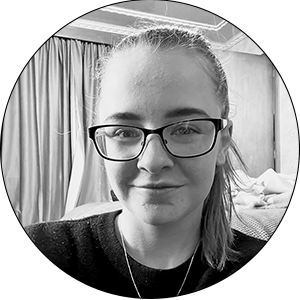He Whakaaro: No place for hate speech
Jul 12, 2023

Nā Hannah Kerr
Ko Kāi Tahu, ko Kāti Mamoe, ko Waitaha ōku iwi.
I am Kāi Tahu.
I am Kāi Tahu because my tīpuna were Kāi Tahu, Kāti Mamoe and Waitaha.
I am not a percentage; my nose is not Scottish; my hair is not Māori.
I am Kāi Tahu because of my pāpā, my tāua and her great-tāua and great-pōua – 1848 kaumātua, Ana Pateke and Horopapera Momo.
I have pale skin with freckles and blond hair – so what? I live in the south and it doesn’t get very sunny here.
This didn’t stop the questioning, the jokes and the disbelief when I told people while I was growing up that I was Kāi Tahu. “You’re the whitest Māori I know”, “Yeah but you’re only like what, 10 percent Māori?” or simply “You’re not Māori, you’re lying! You’re not brown enough.” Yes, these are literal quotes; some I heard multiple times, even from those I considered my closest friends.
There was also the racist jokes or the intentional butchering of te reo, especially place names. I grew up near Waikouaiti and when I would say where I was from, people looked at me like I was insane and would promptly tell me: “You’re pronouncing it wrong: it’s Whacka-why-iti” or even worse I’d get the saying ‘Oh you’re from Whack-a- white, Smack-a-black.’ ”
While seemingly insignificant and always brushed under the carpet as a joke, these types of comments are anything but. Sadly, these types of racist remarks have become so embedded in the fabric of our society they are deemed acceptable – but they are not.
Racism and hate speech have always been present, but in the last 18 months or so, there seems to have been a resurgence (especially on social media) of people increasingly feeling comfortable saying derogatory comments. They hide behind a mask of “freedom of speech”, which they believe entitles them to say anything without consequence.
It’s not just radical Facebook trolls either; prominent politicians and well- known New Zealanders have begun to voice opinions about Māori and aspects of our culture. Recently, we have had council members opposing the use of karakia to open meetings. Kaipara Mayor, Craig Jepson, tried to ban karakia at council meetings; and Otago regional councillor, Kevin Malcolm, had a “showdown” with a karakia at the start of a meeting and found it “just too much”, so walked out.
There’s also the more subtle racism – the aunt who posts her agreement on Facebook that Māori are trying to steal the water. The old lady who tells you you’re less Māori than anything else, or the friend who laughs at a Six60 waiata, proclaiming: “Who turned this woke s..t on?”
Then there’s the anti-co-governance movement being fronted by Aucklander Julian Batchelor with his slogan, ‘Preserve Democracy, Stop Co-governance’. He and his supporters were filmed yelling in the faces of Māori protestors with Batchelor saying, “This is my meeting not yours!”
He also spoke to Newshub saying co-governance “is illegal and based on a fraudulent interpretation of the Treaty.”
In a similar vein, Nelson-based Amy Brooke wrote an article for The Spectator stating that speaking te reo Māori “has become a form of cultural bullying … is not only unintelligent: it is basically discourteous. It is also inauthentic.” These types of vitriol are not harmless, nor are they genuine expressions of free speech. At their core they are overtly racist and intentionally designed to rally people to support their extremist ideologies.
Free speech should never make another person feel less free.
In my view, this current rise in racism stems from a basis of fear of losing what they perceive as rightfully theirs. There is also an unwillingness by many to learn. If everyone took time to listen, learn and absorb the knowledge Māori so graciously share, these people who so fiercely demand that Māori are “prioritised and privileged” would realise the so-called “privilege” Māori are given today, is actually a need that has arisen out of an almost 200-year breach of rights.
A quote that I often recall and one that I find increasingly relevant, is from Moana Jackson who was, at the time, addressing Minister Gerry Brownlee about so-called “Māori privilege” in the context of the Foreshore and Seabed debate.
“The need that Māori now have often arose out of the breach of those rights. So, to address Māori need you’re actually recognising that certain rights have been breached and it seems to me to be quite wrong to therefore call the addressing of need, based on a breach of rights, a special privilege.
It’s also wrong because it misinterprets our history where the taking of power, the taking of land from Māori, actually resulted in the privileging of Pākehā – the establishment of Pākehā institutions of power and Pākehā wealth was a privileging done at the expense of Māori.
So perhaps we need a Minister of Race Relations to consider Pākehā privilege rather than misinterpret the gross breach of rights that our people have endured for over 160 years.”
Even though this conversation happened nearly 20 years ago, it is more relevant than ever.
Aotearoa needs change; it needs us all to make a difference.
We need to stand up and ensure we call out all forms of racism.
We need everyone to learn our real history and start working towards creating a better place for our future generations, so they don’t have to continue to fight what our tīpuna fought for.

Hannah Kerr (Kāti Wheke, Moeraki, Kāti Huirapa ki Puketeraki) lives in Karitāne, Otago and is a Writer and Editor for Te Pānui Rūnaka and TE KARAKA. Hannah has a passion for writing, photography, rugby league, netball and our pūrākau.